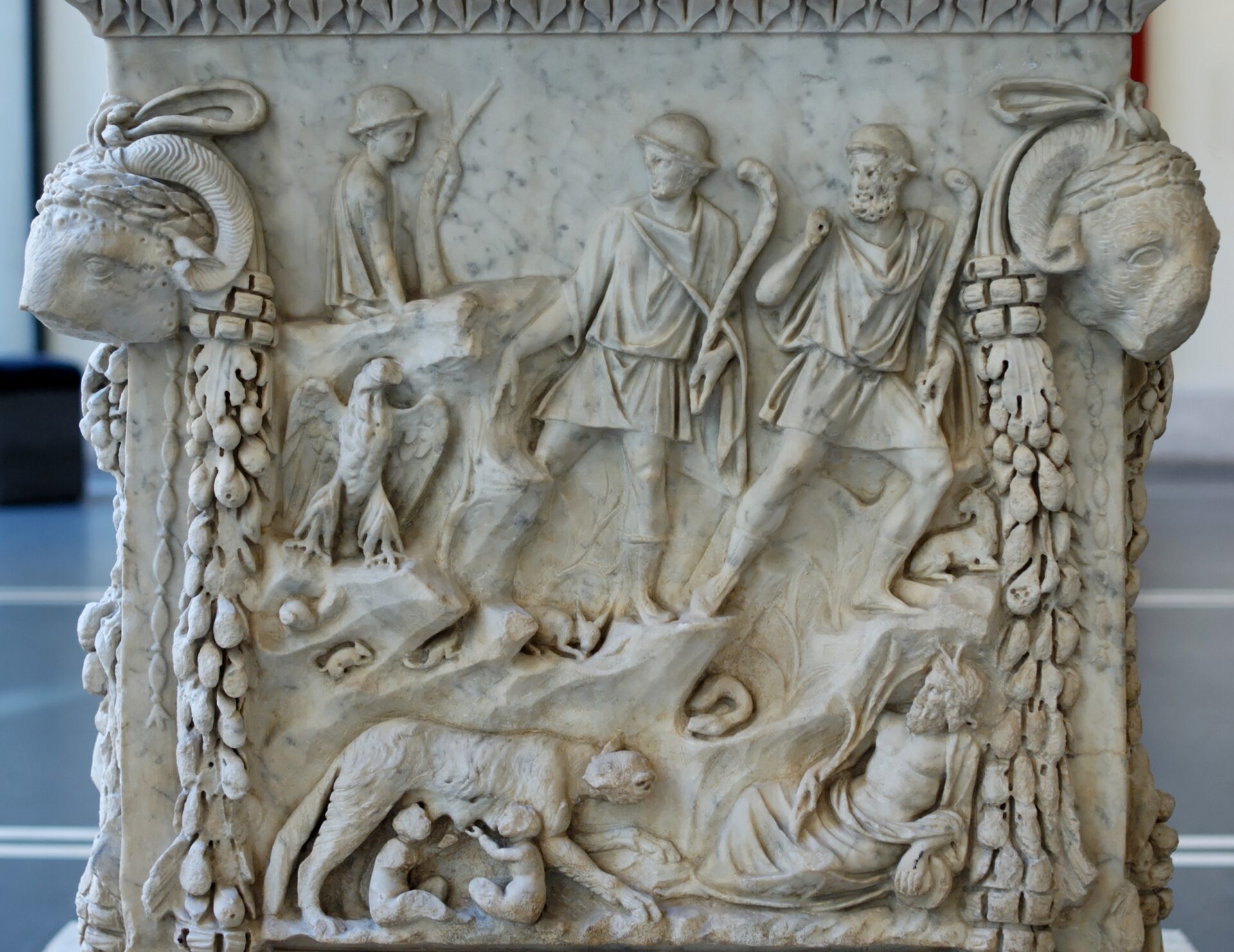Before the first contacts with the Greeks, the Romans had already evolved their own religion—the worship of the household spirits, the lares and penates, that governed their everyday affairs, along with those spiritual beings that inhabited the local woods, springs, and fields. Like the Greek goddess Hestia, the Roman Vesta presided over the hearth and had in her service specially trained vestal virgins. From the Etruscans the Romans took the belief in omens which they never abandoned.
They foretold the future through observing the flight of birds (the auspices) and examining the entrails of sacrificed animals (the auguries). From Greece there came the entire Olympic collection of gods and goddesses, some of them merging their identities with existing Roman divinities, and most of them changing their names; Zeus became Jupiter; Hera, Juno; Poseidon, Neptune; and so on, although Apollo remained Apollo.
Julius Caesar, Augustus, and many of their successors were deified after their deaths, and Augustus consented to be worshiped in Gaul at temples set up to “Rome and Augustus.” But except for certain festivals, the individual Roman took little part either in the imperial cult or in other religious rites.
The official priests performed most rites, headed by their chief priests, the Pontifix Maximus. The state religion early lost its appeal for the Romans. Moreover, there was no reason they could not worship as many other gods as they chose. Rome therefore imported cults from other places, chiefly the East.

